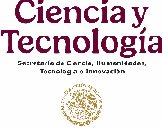- Machine Learning and Data Analysis
Machine learning and data analytics are two related fields that focus on processing and interpreting data with the goal of gaining insights, making predictions, or automating data-driven tasks. Both fields are fundamental in the field of data science and have applications in a wide range of industries.
Researchers:
Adrián Pastor López Monroy
Fernando Sánchez Vega
Johan Jozef Lode Van Horebeek
- Biomathematics
Biomathematics is an interdisciplinary discipline that combines mathematical concepts and techniques with biology and other related sciences to address biological and medical problems. These applications range from the mathematical modeling of biological and population processes to the analysis of biological and epidemiological data. Biomathematics plays a crucial role in understanding and solving problems in fields such as ecology, genetics, epidemiology, pharmacology, neuroscience and others.
Researchers:
José Ignacio Barradas Bribiesca
Marcos Aurelio Capistrán Ocampo
Francisco Javier Solís Lozano
- Statistical Inference and Applied Statistics
Statistical inference is a fundamental process in statistics that consists of drawing conclusions or making decisions based on the information provided by a sample of data, with the purpose of making generalizations about a larger population from which the sample was drawn. In other words, statistical inference is used to obtain information about unknown characteristics of a population based on information collected from a representative sample of that population.
Researchers:
José Andrés Christen Gracia
Díaz Francés Murguía Heloísa
Graciela María de los Dolores González Farías
Arturo Jaramillo Gil
Emilien Antoine Marie Joly
Rodrigo Macías Páez
Miguel Nakamura Savoy
Lilia Leticia Ramírez Ramírez
Enrique Raúl Villa Diharce
- Robotics and Intelligent Systems
Robotics and intelligent systems are two interrelated fields that deal with the design, development and use of machines and systems capable of performing tasks autonomously or semi-autonomously, making decisions and adapting to their environment.
Researchers:
Israel Becerra Durán
Hector Manuel Becerra Fermin
Oliva Palomo Fatima de Jesus
Carlos Alberto Lara Alvarez
Diego Alberto Mercado Ravell
Rafael Eric Murrieta Cid
- Inverse Problems and Uncertainty Quantification
Inverse problems are those in which unknown causes or conditions are sought to be determined from known observations or results. In other words, instead of predicting what will happen given certain initial conditions and parameters (as in direct problems), it involves working backwards from the observed results to infer the conditions or parameters that led to those results.
Uncertainty quantification refers to the process of evaluating and expressing the lack of certainty or precision in data, models or results. In many cases, experimental data may contain errors, and mathematical models used to solve inverse problems may have unknown parameters or random variables.
Researchers:
Marcos Aurelio Capistrán Ocampo
Lili Guadarrama Bustos
- Topological Data Analysis and Applications of Topology
Topological data analysis is an approach in data science that focuses on the study of topological and geometric relationships in data sets. Its primary goal is to discover underlying structures, patterns, and connections between data that may not be evident using traditional analysis methods. Topological data analysis is based on concepts of topology, a branch of mathematics that studies the properties of continuity and connectivity of objects.
Researchers:
Antonio Peter Rieser
Jesus Rodriguez Viorato
- Numerical Analysis, Mathematical Computation and Optimization
Numerical analysis and mathematical computing are two interrelated fields in mathematics and computer science that focus on the study and application of numerical methods and computational techniques to solve mathematical and scientific problems. These fields are essential for addressing problems that cannot be solved analytically or exactly, and are widely used in various scientific and engineering disciplines.
Mathematical optimization is a field that focuses on finding the best possible solution to a problem, usually within a set of possible valid solutions, while satisfying certain constraints or limitations. The fundamental objective is to find the maximum or minimum value of a function, called the objective function, subject to a set of conditions or restrictions.
Researchers:
Luis Daniel Blanco Cocom
Salvador Botello
